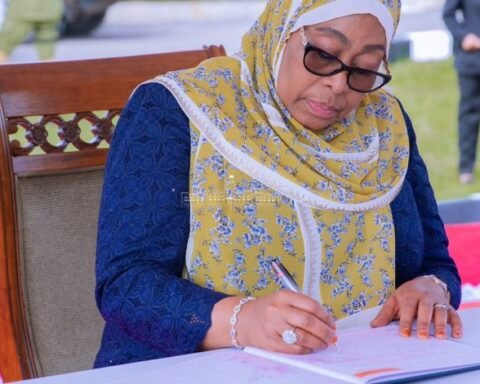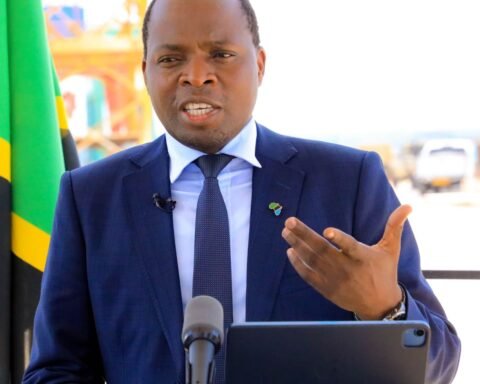Tanzania’s Marine Police recently hosted a special training session that brought together students, community members and stakeholders to learn about maritime safety, crime prevention and rescue operations.

The training shone a spotlight on women officers who serve in the Marine Police, aiming to challenge stereotypes and encourage more young women to pursue careers in maritime law enforcement.
Assistant Commissioner of Police Shaban Mpagwa, who led the event, said the program was specifically structured for female students to observe how women in uniform confront dangers on the water. He stressed that the role of the police is often misunderstood.
“Many believe police only rely on force or weapons. That is not the case. We are here to safeguard lives and property. There is no reason for citizens to fear or mistrust us,” he said.
Assistant Superintendent of Police Anna Nicoullas Ugomba echoed this sentiment, urging more girls to join the Marine Police. “Women are capable. This is not a field reserved for men. I would like to see more students take up this challenge and play a role in building both our economy and our security,” she noted.

A global crime-prevention expert attending the session added that strengthening marine policing has far-reaching benefits for society, from curbing illegal fishing to ensuring safe travel and trade across international waters. He encouraged parents and guardians to support their daughters in considering this path.
For many students, the training was an eye-opening experience. Princess Asia Mahmoud from Kisutu Girls School described it as transformative. “I have learned a lot about water safety and rescue operations. Today I feel motivated to encourage my peers, and I personally aspire to join the Marine Police someday,” she said.
Also Read;Mpina Defends Nomination, Challenges Samia’s Candidacy
The initiative forms part of Tanzania’s broader strategy to expand maritime security, especially along its vast coastline bordering the Indian Ocean. Regional experts warn that threats such as smuggling, piracy and illegal fishing remain persistent challenges in African waters. By building capacity at the local level, authorities hope to strengthen resilience against these risks.

Globally, organisations such as the United Nations Office on Drugs and Crime have highlighted the importance of maritime law enforcement, not only for national security but also for economic growth and the protection of marine ecosystems. Tanzania’s efforts to involve young people, particularly women, mirror similar initiatives in countries striving to increase female participation in traditionally male-dominated sectors.
With climate change intensifying weather patterns, maritime rescue training is becoming more urgent. Storms and floods threaten coastal communities worldwide, making skilled rescue units indispensable. In this context, Tanzania’s program reflects a global trend of investing in preparedness, prevention, and inclusion.
The Marine Police training has thus served not only as an educational tool but also as a statement of intent: to dispel misconceptions about policing, inspire new recruits, and strengthen safety at sea.







